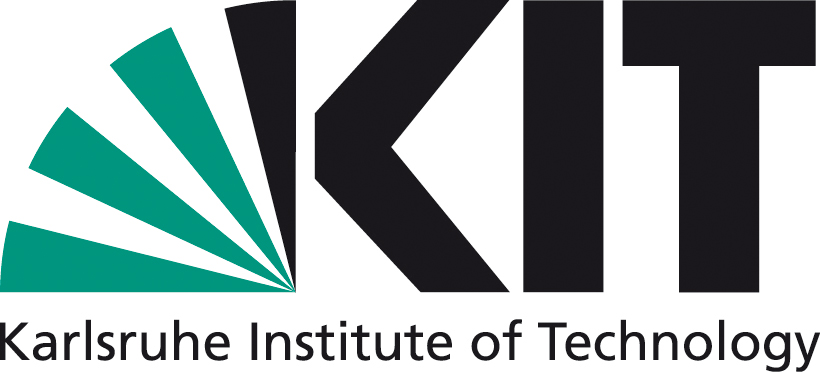Guiding motives and storylines of the German energy transition
How to systematically integrate stakeholder positions into energy transformation pathways
DOI:
https://doi.org/10.14512/tatup.28.3.27Keywords:
energy system transformation, energy scenarios, energy values, stakeholder involvementAbstract
Pathways towards sustainable energy transformations are usually premised on model-based scenarios. These scenarios have to incorporate societal dynamics and their interaction with technological, economic, and ecological processes. This also requires the consideration and integration of the stakeholders’ positions into the scenarios. For this purpose, we present two different approaches: the first one identifies the stakeholders’ guiding motives regarding the German energy transition and analyzes how these positions can be realized in technological and economic transformation pathways. In the second approach, storylines are developed in a participatory process with the stakeholders to ensure increased legitimacy and communication of the resulting pathways. For both approaches, we discuss the methodological capture of stakeholder positions and their subsequent integration into energy transformation pathways.References
Bauknecht, Dierk et al. (2018): Pfadentscheidungen der Energiewende. Ein Bericht im Rahmen des Kopernikus-Projekts ENavi. Potsdam: IASS. Online verfügbar unter https://www.oeko.de/fileadmin/oekodoc/Pfadentscheidungen-Energiewende.pdf, zuletzt geprüft am 18. 10. 2019.
Becker, Egon; Jahn, Thomas (1999): Sustainability and the social sciences. A cross-disciplinary approach to integrating environmental considerations into theoretical reorientation. London: Zed Books.
Berkhout, Frans (2006): Normative expectations in systems innovation. In: Technology Analysis & Strategic Management 18 (3–4), S. 299–311. DOI: https://doi.org/10.1080/09537320600777010
BMBF – Bundesministerium für Bildung und Forschung (2019): Kopernikus Projekte. Die Zukunft unserer Energie. Online verfügbar unter https://www.kopernikus-projekte.de/, zuletzt geprüft am 27. 06. 2019.
Canzler, Weert; Dierkes, Meinolf (2001): Informationelle Techniksteuerung. Öffentliche Diskurse und Leitbildentwicklungen. In: Politische Vierteljahresschrift, Sonderheft 31 „Politik und Technik. Analysen zum Verhältnis von technologischem, politischem und staatlichem Wandel am Anfang des 21. Jahrhunderts“ hg. von Georg Simonis und Thomas Saretzki, S. 457–475. DOI: https://doi.org/10.1007/978-3-322-80387-0_24
Cuppen, Eefje; Bosch-Rekvelt, Marian; Pikaar, Ewout; Mehos, Donna (2016): Stakeholder engagement in large-scale energy infrastructure projects. Revealing perspectives using Q methodology. In: International Journal of Projekt Management 34, S. 1347–1359. DOI: https://doi.org/10.1016/j.ijproman.2016.01.003
de Haan, Gerhard (2001): Die Leitbildanalyse. Ein Instrument zur Erfassung zukunftsbezogener Orientierungsmuster. In: Gerhard de Haan, Ernst-Dieter Lantermann, Volker Linneweber und Fritz Reusswig (Hg.): Typenbildung in der sozialwissenschaftlichen Umweltforschung. Wiesbaden: Springer VS. DOI: https://doi.org/10.1007/978-3-322-94975-2
Giesel, Katharina (2007): Leitbilder in den Sozialwissenschaften. Begriffe, Theorien und Forschungskonzepte. Wiesbaden: VS Verlag für Sozialwissenschaften.
Gleich, Arnim von; Brand, Urte; Stührmann, Sönke; Gößling-Reisemann, Stefan; Lutz-Kunisch, Birgit (2010): Leitorientierte Technologie- und Systemgestaltung. In: Klaus Fichter, Arnim von Gleich, Reinhard Pfriem und Bernd Siebenhüner (Hg.): Theoretische Grundlagen für erfolgreiche Klimaanpassungsstrategien. Bremen: Projektkonsortium nordwest2050.
Heyen, Dirk; Brohmann, Bettina; Libbe, Jens; Riechel, Robert; Trapp, Jan (2018): Stand der Transformationsforschung unter besonderer Berücksichtigung der kommunalen Ebene. Berlin: Öko-Institut e. V.
Mielke, Jahel; Vermeßen, Hannah; Ellenbeck, Saskia; Fernandez Milan, Blanca (2016): Stakeholder involvement in sustainability science. A critical review. In: Energy Research & Social Science 17, S. 71–81. DOI: https://doi.org/10.1016/j.erss.2016.04.001
Nakićenović, Nebojsa (2000): Greenhouse gas emission scenarios. In: Technological Forecasting & Social Change 65 (2), S. 149–166. DOI: https://doi.org/10.1016/S0040-1625(00)00094-9
Rosenstiel, Lutz von (2007): Grundlagen der Organisationspsychologie. Stuttgart: Schäffer-Poeschel Verlag.
Timpe, Christoph; Bauknecht, Dierk; Flachsbarth, Franziska; Koch, Matthias (2018): Transparenz Stromnetze. Stakeholder-Dialog und Modellierung zum Netzausbau und Alternativen. Berlin: Öko-Institut e. V.
Trutnevyte, Evelina; Barton, John; O’Grady, Aine; Ogunkunle, Damiete; Pudjianto, Danny; Robertson, Elisabeth (2014): Linking a storyline with multiple models. A cross-scale study of the UK power system transition. In: Technological Forecasting & Social Change 89, S. 26–42. DOI: https://doi.org/10.1016/j.techfore.2014.08.018
Weimer-Jehle, Wolfgang; Prehofer, Sigrid; Vögele, Stefan (2013): Kontextszenarien. Ein Konzept zur Behandlung von Kontextunsicherheit und Kontextkomplexität bei der Entwicklung von Energieszenarien. In: TATuP – Zeitschrift für Technikfolgenabschätzung in Theorie und Praxis 22 (2), S. 27–35. DOI: https://doi.org/10.14512/tatup.22.2.27
Weimer-Jehle, Wolfgang (2006): Cross-impact balances. A system-theoretical approach to cross-impact analysis. In: Technological Forecasting & Social Change 73 (4), S. 334–361. DOI: https://doi.org/10.1016/j.techfore.2005.06.005
Downloads
Published
How to Cite
Issue
Section
License
Copyright (c) 2019 Ricarda Schmidt-Scheele, Dierk Bauknecht, Witold-Roger Poganietz, Dominik Seebach, Christof Timpe, Wolfgang Weimer-Jehle and Annika Weiss

This work is licensed under a Creative Commons Attribution 4.0 International License.








